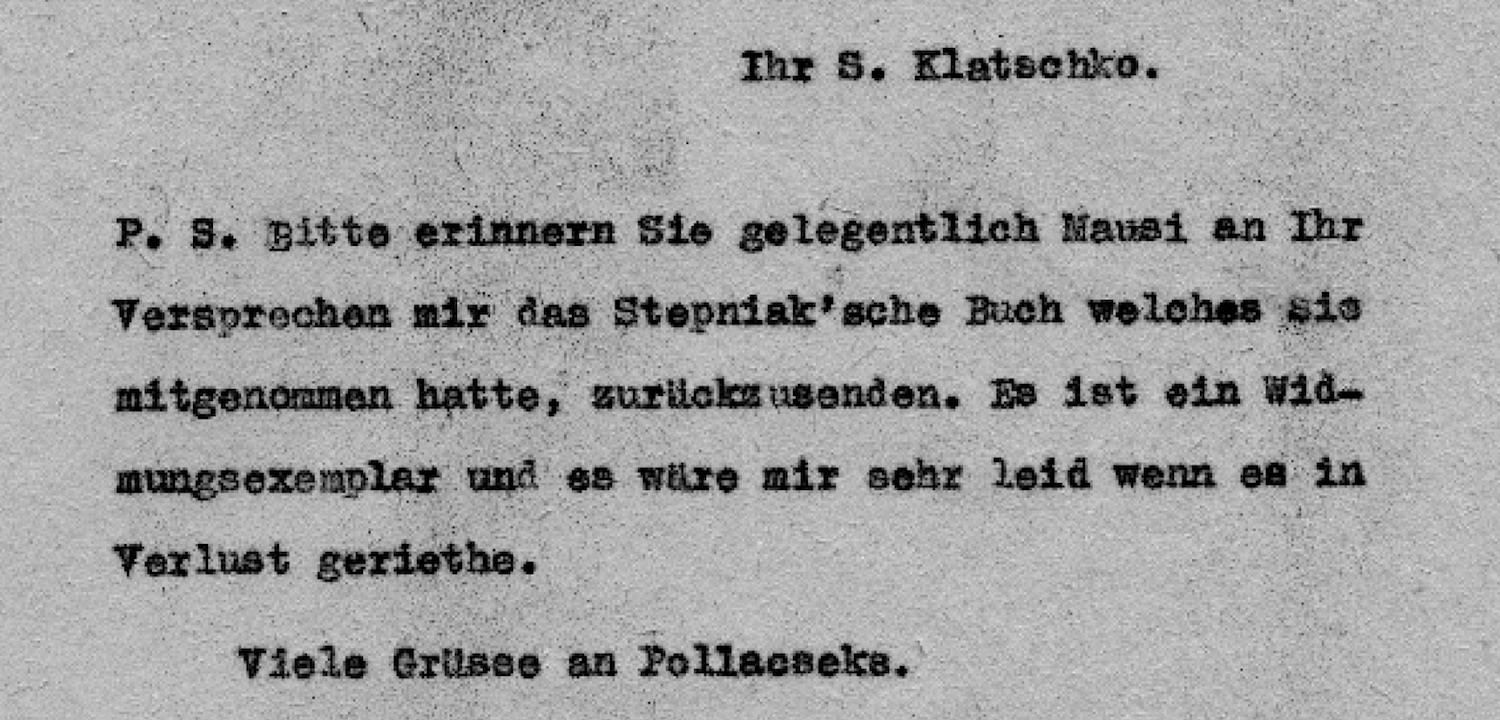
How to explain the presence of (a part of) correspondence between Ervin Szabó and Aline Klatschko [AKP 56/02], and between Szabó and Samuel Klatschko [AKP 56/03]? Both correspondences are from years between 1899 and 1901, and letters were typewritten without misprint or crossing-outs, and seem quite ‘recent’ (say, after 1940-1950). 90% is in German but some letters in Hungarian have been translated in German.
Who realized those transcriptions and translations, for who and for which objectives of the instigator? Was Karl Polanyi who realized himself this task, or was it done for him by someone else; but when and why? Were some close relatives, after the 1960s, but why?
In these letters, Szabó and his two correspondants seem to speak about actuality, books, politics, but it do not seem that one can find in it any doctrinal elaboration of great interest (Szabó is finishing his PhD in this time), that Polanyi would have wanted particularly keep or integrate into his own thinking. Then, the interest of this task is unknown.
That Polanyi wanted to keep a souvenir of his cousin and could not make photocopies of the letters as we can today is understandable. Nevertheless, these copies do not seem to date from the beginning of the twentieth century, given their quality, and it is difficult to understand why, years later, if Polanyi had inherited them, he would have transcribed them or had them transcribed rather than keeping them in manuscript.
It is possible that Ilona Duczysńka made or commissioned these transcriptions, as she wrote an article about Szabó in 1968: “Ervin Szabó, our great teacher (Mesterünk: Szabó Ervin) dans Kortára, Budapest, October 1968 [AKP 45/01, 50]
First publication: 09 June 2017 – update: 29 June 2017.